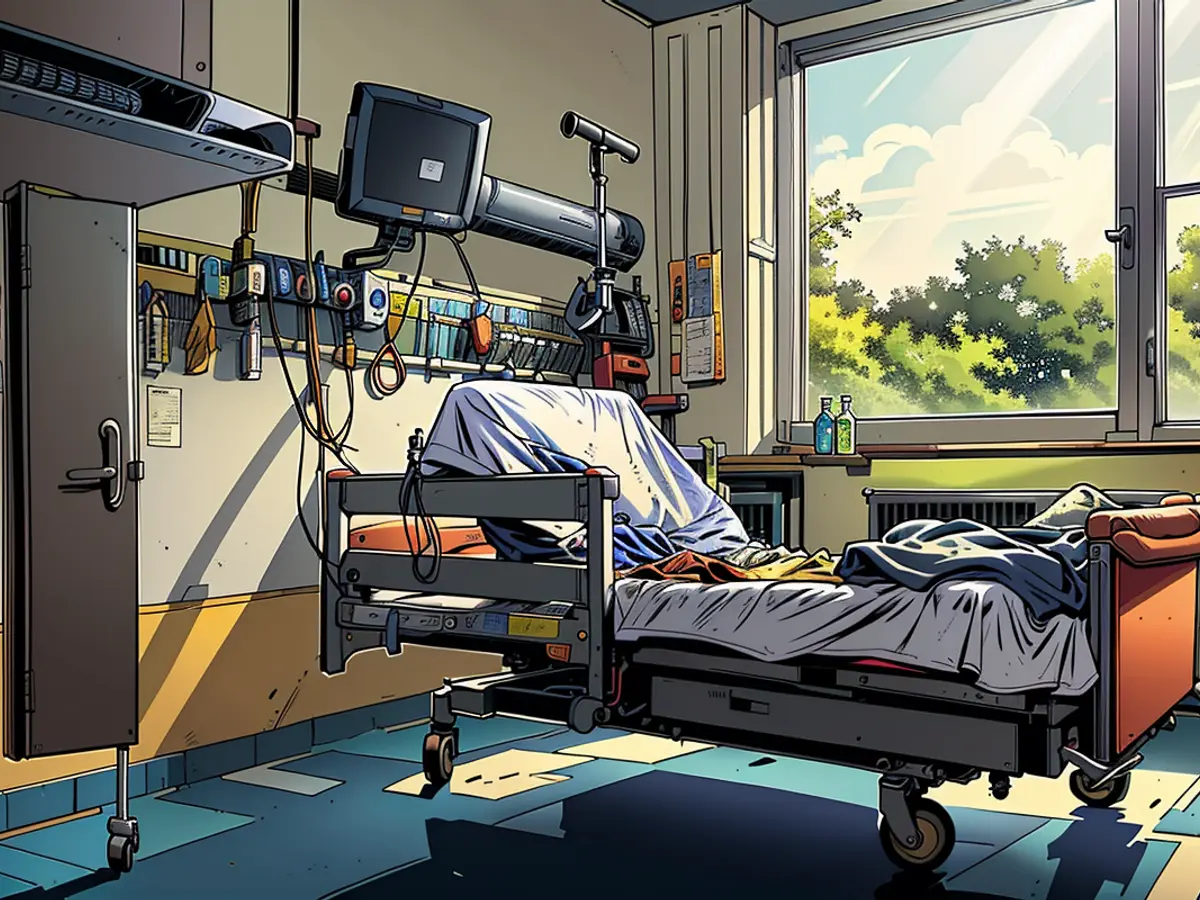Ampel endorses hospital overhaul – most significant change in decades
The German government is preparing to implement a hospital reform, anticipated to be approved by the Bundestag next week. The Bundesrat is scheduled to discuss it in November, potentially leading to its passage this year, as announced by Federal Health Minister Karl Lauterbach. After extensive negotiations, coalition party representatives have agreed on the final details of the reform, which includes several technical changes. For instance, smaller hospitals in rural areas will soon be authorized to provide specialist outpatient care if there's a lack of such specialists in the region or if none are willing to relocate there.
Lauterbach hailed it as a positive day for German hospitals and patients, referencing it as the biggest hospital reform in over two decades. Representatives from the SPD, Greens, and FDP also expressed satisfaction, labeling it a significant law. Despite state-level criticism, Lauterbach remains optimistic about the reform's approval without requiring mediation.
He warned of potential consequences, stating, "If it fails, we'll be dealing with unprecedented hospital closures next year. Hospitals are currently holding on, anticipating the reform's implementation next year."
Improved Payment System
Germany is home to approximately 1700 hospitals - the health ministry boasts Europe's highest hospital and bed density. Many beds remain vacant, and numerous hospitals operate at a loss. The proposed reform aims to encourage specialization and decrease bureaucracy.
A new payment system aims to alleviate financial strain on hospitals and prevent them from performing unnecessary procedures for financial gain. Currently, hospitals are compensated with a flat rate per patient or treatment case. This system will be replaced by a system of lump-sum payments: fixed amounts for staff salaries, emergency room maintenance, and essential medical technology. This could provide hospitals with a form of financial stability even with fewer treatments, as per the health ministry.
By establishing uniform quality standards, patients will be better equipped to choose the most suitable hospital for their condition. The aim is to prevent a situation where numerous hospitals in a particular area each treat a small number of colon cancer cases. Instead, specialized treatments should be concentrated in fewer hospitals, which would then treat more cases and achieve higher quality through increased experience.
The new payment system in the hospital reform, as announced by Federal Health Minister Karl Lauterbach, aims to alleviate financial strain on hospitals by replacing the current flat rate per patient with lump-sum payments for staff salaries, emergency room maintenance, and essential medical technology. This could provide hospitals with financial stability even with fewer treatments.
The improved payment system in the hospital reform could result in better-equipped patients to choose the most suitable hospital for their condition, as uniform quality standards will be established, preventing numerous hospitals in a particular area from treating a small number of specialized cases each.








